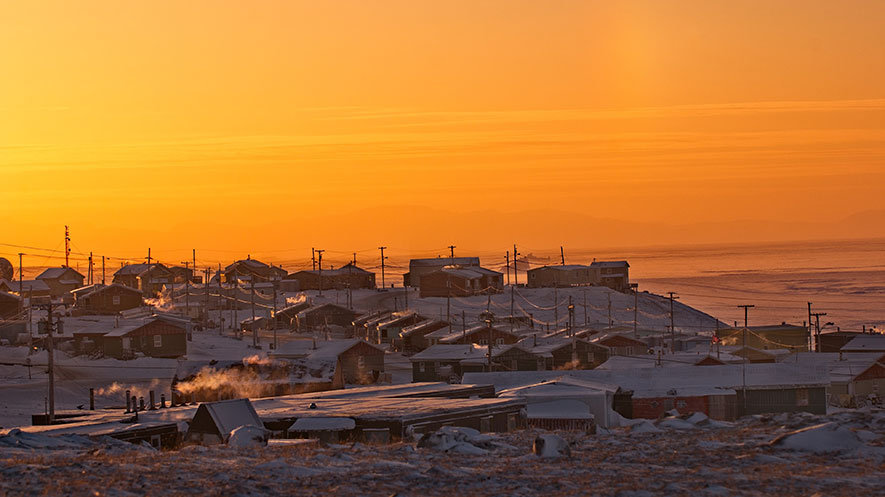According to an article by Mia Rabson in The Canadian Press, the Supreme Court of Canada has unanimously ruled that the National Energy Board (NEB) failed to properly consulting Inuit and didn’t adequately assess the impact on treaty and Indigenous rights of a proposed oil and gas exploration project before approving it in 2014.
The decision means victory for the Inuit Hamlet of Clyde River on the northeast coast of Baffin Island, who won a nearly six-year battle to stop seismic testing in in Baffin Bay and the Davis Strait. The Inuit claimed the testing could kill or maim the marine mammals upon which they rely for food and jobs.
The court dismissed NEB’s approval, meaning the testing can no longer go ahead. Clyde River residents rely on marine mammals for food, and for economic, cultural and spiritual purposes. The Inuit there have well-established treaty rights in the region including the right to harvest marine mammals.
Clyde River has been fighting against the seismic testing since it was first proposed in 2011. The project would have involved measuring underwater resources of petroleum by shooting air guns through the water for five months a year over a five-year period. The waters in question are adjacent to where Clyde River has treaty rights and it was undisputed that the testing would negatively impact marine mammals in the area, such as whales, seals and polar bears, including raising their risk of death, potentially damaging their hearing and affecting their migration routes.
That assessment meant the Crown’s duty to consult was “at the highest end of the spectrum,” ruled the court. Yet the consultation “fell short in several respects” the court found.
That included the fact the proponents couldn’t initially answer Inuit questions about the impact on the mammals, and when they did answer them months later, the answers were delivered in a nearly 4,000 page digital document the Inuit couldn’t download because of the poor Internet speeds in the far north.
“To put it mildly, furnishing answers to questions that went to the heart of the treaty rights at stake in the form of a practically inaccessible document dump months after the questions were initially asked in person is not true consultation,” wrote the court.
The court also issued a stern warning that the consultation process on Indigenous rights has to occur before projects are approved.
“True reconciliation is rarely, if ever, achieved in courtrooms,” the judgement says. “Judicial remedies may seek to undo past infringements of Aboriginal and treaty rights but adequate Crown consultation before project approval is always preferable to after-the-fact judicial remonstration following an adversarial process.
“No one benefits – not project proponents, not Indigenous peoples, and not non-Indigenous members of affected communities – when projects are prematurely approved only to be subjected to litigation.”





